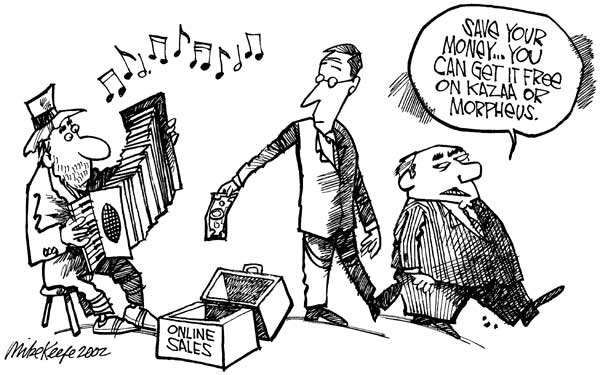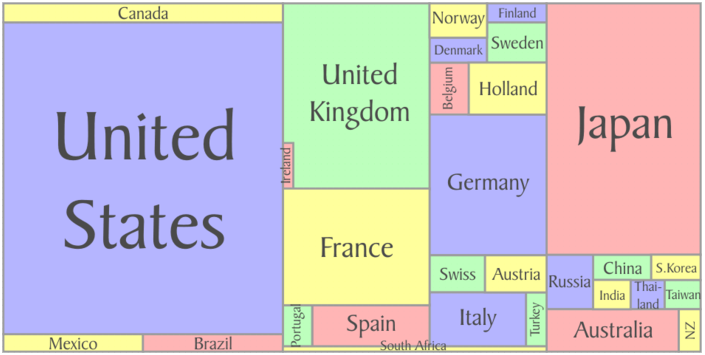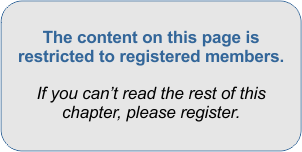
One of the biggest debates in the music circles over the past 20 years has been the growth of the internet “music piracy” which is blamed for the supposed “destruction of the music business”, and which has been used as an excuse for endless freedom-limiting legal measures by the powers that be.
[youtube 1otaIZWwv70]
Superficially, this sounds plausible. How can “theft” not hurt a business? But when you think about it – better yet, see the actual outcomes – it’s as false as can be. It’s like blaming tractors for doing away with horse-driven ploughs. Or like blaming the industrial revolution for increasing worker productivity 100-fold and focusing on the minority that lost out in the transition.
[emember_protected for=2-3-4-5]
It’s just a new paradigm, and a much better one for the majority of people than the previous one, as you’ll soon see.
 There is this common fallacy when people are arguing against about the possibility of living without governments (a position advocated by anarcho-capitalists): “who would build the roads?“
There is this common fallacy when people are arguing against about the possibility of living without governments (a position advocated by anarcho-capitalists): “who would build the roads?“
Their faulty logic argues that without an all-powerful government who in its infinite wisdom builds our infrastructure, there would be no private profit motive for entrepreneurs to build public roads – unless they’d charge the heck out of the users and thus everyone would lose out.
But people who think that way haven’t been paying attention to the realities of the Internet, never mind not using their logic or brains very creatively, or not understanding economics.
If you look at the Web, everything is provided “for free” by entrepreneurs, large and small, who invest fortunes into those seeming freebies (think: “the roads”). Why? Because those “roads” allow them to sell OTHER things.
It’s precisely analogous with music.
You can still charge for your MP3’s under some circumstances, but don’t think of them as your main source of income. Think of them as the reason why people will come to check you out in the first place. They’re your “roads”. Once you own them, you can monetize them in hundreds of alternative ways.
After all, while the “music business” is worth some 120-140 billion dollars per year (depending on which stats you believe), the so-called “extended music business”, i.e. all industries which to some extent or other depend on music (from music equipment manufacturers to concert halls) is worth over 1.5 trillion! With a “T.”

Global music sales 2012
Think of your MP3’s as a “loss leader” in an otherwise potentially very lucrative business. Like shops which sell items on specials for well under cost, knowing that you won’t just buy the cheap things – you’ll continue shopping. It’s a similar thing with music.
The demand for music has never been higher. All kinds of music. Yours too! But the general willingness to pay for it (or at least for “music recordings” themselves) has never been lower.
If you think of your music as “the road” – people just want to drive on it (i.e. “listen”) without paying. And that’s just fine, because it’s YOUR road! You can sell access to your road to others or build your own supplementary businesses all around it if you please. That’s the real value of “free” roads. And free music!
That is why your music business must reflect that knowledge and capitalize on it. You will not succeed if your business model assumes that you will replace your job by only selling your MP3’s. You must think well outside of that box.
So, who would build the roads (make music in a “pirate’s market”)? Anyone with a vision and common sense. Like you.
[/emember_protected]
 |
 |
 |
| Book 1 – Chapter 05 All About Hits? |
Course Overview | Book 1 – Chapter 07 What About A&R? |
Book 1: 1, 2, 3, 4, 5, 6, 7, 8, 9, 10, 11, 12, 13, 14, 15, 16, 17, Overview


Wow, That’s a lot of stuff…..do you know where I can find a beautiful young girl to do all this for me?? Your help would be very much appreciated thanks, Slim
hehe, what a jolly good idea! 😉
As you read through you might discover it’s not all that hard after all. And I’m here to help if ever you need it.